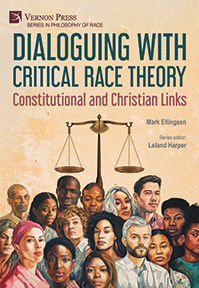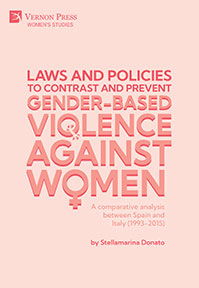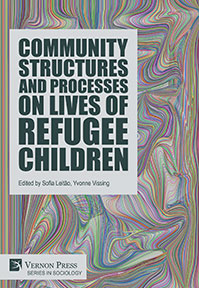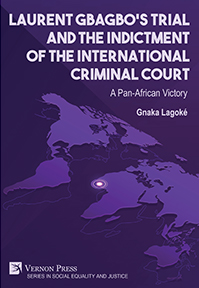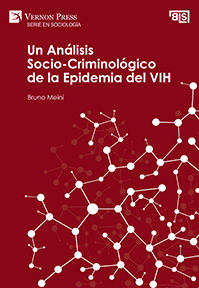Search
Browse
by Publication status
by Subject
Anthropology (26) Art (124) Business and Finance (26) Cognitive Science and Psychology (54) Communication and Journalism (45) Economics (62) Education (66) History (149) Human Geography (22) Interdisciplinary (42) Language and Linguistics (129) Law (16) Music Studies (18) Philosophy (157) Political Science and International Relations (103) Sociology (304) Statistics and Quantitative Methods (20)by Series
Series in Literary Studies (65) Series in Philosophy (59) Series in Education (51) Series in Sociology (42) Series in Politics (32) Series in World History (32) Bridging Languages and Scholarship (31) Series in Language and Linguistics (25) Cognitive Science and Psychology (20) Series in American History (20) Series in Philosophy of Religion (20) Series in Art (19) Critical Perspectives on Social Science (16) Series in Cinema and Culture (16) Curating and Interpreting Culture (15) Series in Critical Media Studies (14) Series on the History of Art (14) Series in Anthropology (13) Series in Business and Finance (13) Economics (13) Series in Music (12) Series in Communication (9) Series in Performing Arts (9) Philosophy of Personalism (8) Series in Law (8) Series in Economic Methodology (7) Series on Climate Change and Society (7) Women's Studies (7) Classics in Economics (6) Series in Economic Development (6) Philosophy of Forgiveness (5) Series in Built Environment (5) Series in Economic History (5) Series in Philosophy of Science (4) Series in Social Equality and Justice (4) Series on the History of Science (4) Serie En Estudios Literarios (3) Serie en Sociología (3) Series in Contemporary History (3) Series in Creative Writing Studies (3) Series in Design (3) The Interdisciplinary Built Environment (3) Serie en Comunicación y Medios (2) Serie en Historia (2) Series in Heritage Studies (2) Series in Innovation Studies (2) Series in Philosophy of Race (2) Serie en Ciencias Políticas (1) Serie en Entorno Construido (1) Serie en Estudios Culturales (1) Serie en Filosofía (1) Serie en Filosofía de la Ciencia (1) Serie en Música (1) Series in Classical Studies (1) Series in Economics of Technological Change (1) Series in Urban Studies (1)by Language
English Spanishby Author
Browsing with filters

Dialoguing with Critical Race Theory: Constitutional and Christian Links
Mark Ellingsen, Interdenominational Theological Center
Availability: In stock
112pp. ¦ $54 £43 €50
Critical Race Theory (CRT) is certainly a hot topic. No longer just the legal theory it was originally designed to be, it has become an icon for determining which side you are on concerning racism. Most of the loudest voices, especially in the debate about CRT in our schools, seem not to have actually studied the theory. This is a book to get you into the heart of CRT’s actual analysis and prescriptions. It’s a book to get Americans to stop all the shouting and really find out what CRT teaches. It might also contribute to getting more civility into our public discourse. Ellingsen demonstrates how in fact what Critical Race Theory teaches is in line with our Constitutional system’s realism about political solutions, suspicions of our selfishness, and the majority’s tendency to run roughshod over minorities. He also demonstrates that these commitments are consistent with Christianity’s understanding of original sin and the quest for social justice. Consequently, if critics do not want CRT taught in our schools or to be part of our public discourse, we had better stop teaching the Constitution and Christian values in our schools, to rule these commitments as out of order in our search for common values! Get ready for a stimulating, controversial, well-documented read.
Laws and policies to contrast and prevent Gender-Based Violence Against Women
A comparative analysis between Spain and Italy (1993-2015)
Stellamarina Donato, LUMSA University of Rome, Italy
Availability: In stock
151pp. ¦ $53 £43 €48
What stage of development are women’s rights as human rights? By specifically regarding the prevention and elimination of all forms of Violence Against Women, the book focuses on two European Mediterranean countries: Italy and Spain. The book first considers the chronological description and analysis of the main international documents, those belonging to the United Nations apparatus, followed by the analysis of the sources on Gender-Based Violence Against Women (GBVAW) of the Council of Europe and the European Union. The analysis of international documents guarantees an initial overview of the debate on GBVAW, following a top-down approach, from the UN to the national level. Successively, the focus is on both national sources as well as the level of government responsiveness in terms of policies on GBVAW in Italy and Spain, while also comparing the cases. The book adopts multimethod research based on qualitative text analysis; an examination of the level of national Government Responsiveness to GBVAW, and a series of in-depth interviews with targeted individuals. The final aim of this book is to understand how international (UN) and regional (CoE, EU) documents on GBVAW, along with the categories and expressions used within the documents, have contributed to different policies in countering GBVAW in Italy and Spain, while also highlighting the reasons why the two countries responded differently. Within a comprehensive international scenario, this book intends to create space for debate on possible future EU policies aimed at contrasting GBVAW.
Community Structures and Processes on Lives of Refugee Children
Edited by
Sofia Leitao, Rinova Limited
and Yvonne M. Vissing, Salem State University
Availability: In stock
253pp. ¦ $90 £75 €84
Communities around the world face challenges in how to assist the influx of refugees and immigrants, who arrive with only the clothes on their backs. They may have health problems and have experienced violence and trauma before they arrived in their new communities. They require healthcare, housing, education, jobs, financial & material support, and childcare, to name a few. Some arrive with families, but often, children and youth arrive unaccompanied and are in need of special care. Even well-intentioned and resource-rich communities may find themselves taxed as they struggle to help everyone in need. This book is framed by a human rights approach and highlights how social structures and institutional processes impact the lives of refugee and asylum-seeking children. Social institutions around the world tend to experience a similar type of challenge in serving this population. These challenges are examined in this book as recommendations for actions provided. The authored contributions present different perspectives on processes, interactions, policies, practices, and laws embedded in a variety of institutions and community social interactions. It is a reference for researchers, practitioners, and students in its presentation of academic and practitioner approaches to challenges faced by refugee children in different geographic and social contexts. Topics in this book include work on the character of transnational migrant families and communities, uses of new information and communication technologies, international frameworks of humanitarian assistance, social inclusion best practices in the integration of migrant children and unaccompanied minors, and models to provide multidisciplinary services on prevention, integration and rehabilitation integration strategies. Concepts of ACEs (Adverse Childhood Experiences) and HOPEs (Healthy Outcomes from Positive Experiences) are explored, along with lifelong learning as a catalyst for the sustained promotion of safe communities in the context of migration; and individual refugee needs and their family’s future wellbeing towards service to refugees that work for the individual.
Laurent Gbagbo’s Trial and the Indictment of the International Criminal Court
A Pan-African Victory
January 2023 / ISBN: 978-1-62273-873-1Availability: In stock
276pp. ¦ $65 £51 €60
The International Criminal Court (ICC), created in 2002 to combat impunity, projects a sense of unfairness and stirs an unending debate. A trial before the court epitomizes the controversy surrounding it, perceived as a neocolonialist tool in the hands of the most powerful nations. This research critically examines the trial of the former president of Ivory Coast, Laurent Gbagbo. The two-decade crisis in Ivory Coast was a series of armed, diplomatic, and political conflicts in which human rights were violated by all sides. Military confrontation resumed as a result of an electoral stalemate that followed a controversial presidential election in the fall of 2010. The most atrocious human rights abuse was perpetrated at the end of March 2011 by the rebel forces backed by the French and the United Nations troops: the massacre of Duékoué. In one day, hundreds of Laurent Gbagbo’s followers were killed. However, the ICC undertook a selective prosecution against Gbagbo’s camp. After a trial of eight years, Laurent Gbagbo was finally acquitted. The news of his unanticipated acquittal shocked the world. Later, that decision was overturned and transformed into freedom with binding and coercive conditions by the Appeals Chamber, which had succumbed to political pressure. The former president of Ivory Coast spent months of confinement in Belgium until the Appeals Chamber rebutted the prosecutor’s appeal against his release and confirmed his total acquittal and that of Blé Goudé. He eventually went back to Ivory Coast on June 17, 2021. The trial of Laurent Gbagbo before the ICC, despite his acquittal (a tardy one), reflects a series of biases germane to international law and international justice, such as the victor’s justice stance, the conflict between national law and international law, the question of sovereignty, and the issue of lawfare. The trial of Laurent Gbagbo, which was the hallmark of the selective international justice system embedded in unfairness, led to a historical landmark with his shocking acquittal, which led to the indictment of the International Court, whose fate has thus been sealed before history.
Un Análisis Socio-Criminológico de la Epidemia del VIH
January 2022 / ISBN: 978-1-64889-335-3Availability: In stock
174pp. ¦ $49 £36 €41
***2022 NYC Big Book Award Winner in the category of Sociology*** En el mundo del siglo XXI, las epidemias son sucesos biológicos y sociales comunes y el VIH quizás lo enfatice mejor que cualquier otra enfermedad. Sin duda, la investigación científica médica ha dado importantes pasos hacia adelante; mientras tanto, el campo de la investigación social se encuentra todavía en sus etapas iniciales y muchos esperan una respuesta igualmente auspiciosa. 'Un Análisis Socio-Criminológico de la Epidemia del VIH' ofrece un análisis integral de las dimensiones socio-criminológicas multifacéticas de la epidemia del VIH y contribuye positivamente al debate sociológico en curso sobre las enfermedades infecciosas. El autor pretende crear una epistemología independiente del VIH para explicar las fuerzas sociales que impactan y determinan el curso y la experiencia de la epidemia, al mismo tiempo que busca replantear el discurso popular sobre el VIH para reflejar las conceptualizaciones sociológicas. Este último paso conduce a la identificación del concepto de interacción social como una herramienta adecuada para resaltar la compleja naturaleza social de este virus. El desafío sin precedentes que plantea la epidemia para la comunidad internacional exige una cooperación global dirigida a evaluar los diversos aspectos de los problemas que muchos actores de este trágico drama deben abordar. Dado su atractivo internacional de amplio alcance, este libro también se recomienda para aquellos involucrados o interesados en problemas de salud global y enfermedades infecciosas. Será de particular interés para los investigadores médicos, los trabajadores de la salud, los científicos sociales, los trabajadores sociales, los encargados de formular políticas, los trabajadores humanitarios, los activistas del VIH y los derechos humanos y los estudiantes de posgrado.

